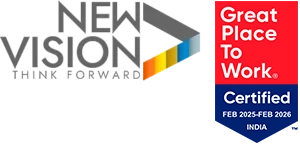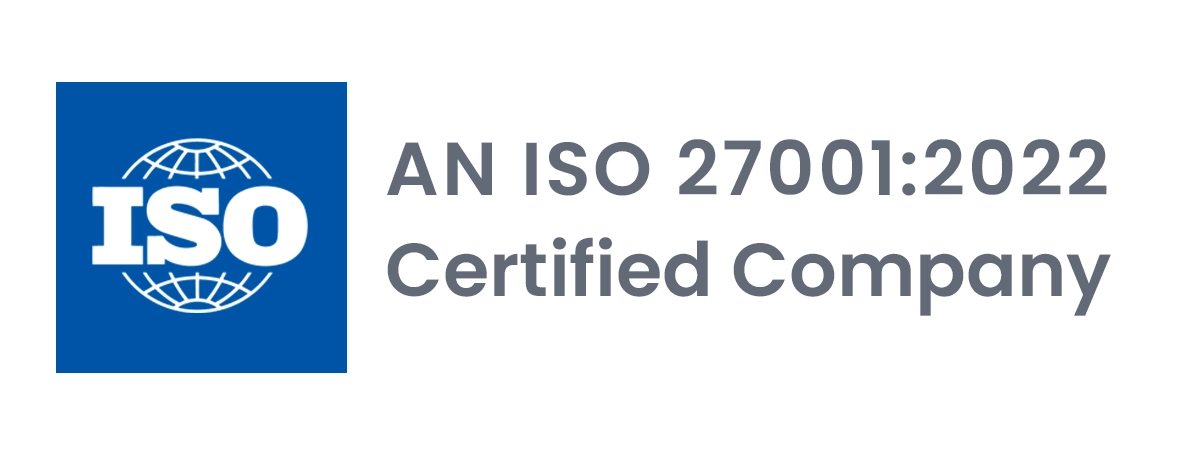
Digital transformation is aided and abated by modern applications that enable businesses to innovate, scale, and deliver seamless digital experiences. Research indicates that between 2024 and 2029, the application modernization market is projected to grow by nearly 15%. This growth is accelerated by the integration of GenAI capabilities, such as automated code refactoring, which streamlines development processes and enhances the adaptability of legacy systems.
As organizations strive to keep pace in a rapidly changing digital world, many are adopting cloud solutions to improve application development. Microsoft Azure, with its extensive Platform as a Service (PaaS) offerings, emerges as a formidable platform that empowers businesses to create, deploy, and manage applications effectively. Forrester’s Total Economic Impact study on Azure PaaS revealed a three-year return on investment (ROI) of 228%, with a payback period of just 15 months. It also highlighted a 50% acceleration in application development speed and a 40% decrease in infrastructure costs related to app development.
Azure PaaS offers two key capabilities that make it a powerful solution for application modernization. First, it is a comprehensive platform for to develop, test, deploying, and managing applications while seamlessly managing infrastructure related needs such as servers, storage, and networking so developers can focus on building innovative solutions.
Second, Azure PaaS delivers scalability and automation requirements with automatic scaling, continuous integration, and delivery tools, ensuring applications remain responsive and efficient as business demands evolve. These capabilities delivered via services such as Azure App Services and Azure Kubernetes Service (AKS), drive operational efficiency and support modernizing legacy systems.
How Azure PaaS Services Transforms Application Modernization, Development and Deployment
Azure PaaS services facilitate Cloud-based transformation with a comprehensive set of infrastructure services that empower developers to design, develop and manage applications through the entire lifecycle from development through deployment to ongoing maintenance. The Azure platform abstracts the complexities of managing underlying infrastructure such as provisioning, scaling, networking and allows developers to focus on the coding and innovation.
In fact, the value derived from ease and convenience offered by Azure Pass has been documented and Forrester estimates that an average organization could save around USD 19.1 million in infrastructure costs related to application development over a three-year period when the organization used Azure PaaS services. By handling infrastructure management—such as servers, storage, and networking—Azure PaaS allows organizations to streamline operations and reduce overhead, enabling developers to focus on innovation and faster delivery.
Azure Integration Service, which is part of Azure Pass Services, enable organizations to integrate applications across on-premises and multi-cloud environments and has been consistently ranked as a leader in Gartner’s Magic Quadrant. Comprising Azure API Management, Logic Apps, Service Bus, Event Grid, Functions, and Data Factory, Azure Integration provides the tools to integrate and meet the distinct challenges of modern businesses.
Specifically, the advantages of Azure PaaS include the following.
- Scalability: Azure PaaS scales up and down according to the fluctuating needs of application allowing the developer to focus on designing the application without worrying about the underlying resources.
- Cost Efficiency: The pay-as-you-go model ensures that businesses only pay for the resources they actually use, lowering the cost of overall development and deployment.
- Accelerated Time to Market: The in-built ecosystem within the PaaS platform enables developers to focus on development and accelerate the release cycle.
- Security and Compliance: Azure offers robust security measures and compliance certifications, helping applications meet industry standards and best practices.
Modernizing Legacy Applications with Azure App Services
Azure App Services is a fully managed platform that enable businesses to quickly build, deploy, and scale web applications. This service is beneficial for organizations that want to modernize legacy systems and achieve scalability and flexibility. Here are a few reasons which make it a platform of choice amongst developers.
Streamlined Development Process: Azure App Services streamlined the development process with pre-built templates for popular programming languages such as .Net, Java and Node.js; auto-scaling features and native integration with continuous integration and delivery (CI/CD) which empowers developers to quickly set up development environment and accelerate the development process.
Improved User Experience: Legacy applications have technological limitations such as rigidly composed applications which makes it difficult to integrate with other systems; lack of visibility into operations and absence of vendor support which becomes a burden in business innovation. Azure App Services enables organizations to take advantage of modern and digital technologies that equip organizations with agility and flexibility to deliver innovation at speed and scale with features like auto-scaling and built-in redundancy to ensure that applications remain responsive, even during high-traffic periods.
Seamless Integration with Azure Ecosystem: Azure App Services is natively integrated with infrastructure and other services such as Azure SQL Database, Azure Functions, and Azure Storage, which ensures high application performance and easy to extend application functionality. It also makes it quick and easy for organizations to fully leverage the capabilities of the Azure ecosystem.
Adopting Containers with Azure Kubernetes Service
To thrive in digital businesses must be responsive to external environment as well as innovate to differentiate. Crucially, IT systems must have adaptive capabilities to operate in hybrid environments comprising traditional infrastructure, corporate data center, private clouds, and public clouds even as the systems run on multiple programming languages and various operating systems. The growing appeal of Kubernetes and containers stems from its ability to simplify application deployment and management across multiple environments.
What organizations need today is to have an IT infrastructure that can efficiently orchestrate and manage containers that allow applications to be ported across different environments to meet changing customer demands and remain competitive. Containers boost cloud-native innovation and development and ensure seamless experiences across platforms to drive business growth and efficiency.
Azure Kubernetes Service (AKS) is managed Kubernetes services to deploy and manage Kubernetes clusters on Azure Cloud. It removes the complexities of managing Kubernetes and allows developers to focus on building applications. Containerization has become a crucial strategy in the modernization initiatives of organizations due to the following benefits.
Simplified Application Management: Developers can deploy containers at the click of a button making deployment easy with built-in automation for essential tasks such as scaling, load balancing, and monitoring. At the same time, AKS provides high availability with multiple nodes in different availability zones.
Flexibility & Portability: Organizations are empowered to move workloads seamlessly between different environments from development to testing and production. AKS has multi-cloud and hybrid cloud capabilities and allows to move workloads to other public cloud environment when required. For instance, a workload can be moved to another public cloud provider to provide better performance in a specific geographic location with a closer data center. It is also equips organizations with a great deal of portability to replicate workloads across regions and implement disaster recovery solutions.
Microservices Architecture Support: Azure PaaS is an ideal platform to develop modern cloud-native application with a micro services architecture. Managed containers on AKS facilitate innovation allowing developers to build extensible applications that can scale independently, even as applications benefit from in-built features such as inherent scaling service discovery and load balancing.
Azure PaaS: Catalyst for Modern Application Development and Deployment
Microsoft Azure Paas Service is experiencing rapid growth propelled by the increased use of AI adoption, commanding 24% of the cloud infrastructure market. Given that the immensely popular AI tool ChatGPT and other OpenAI products run on Microsoft Azure, experts opine that rising Azure popularity is tied to new AI initiatives.
Organizations have achieved game-changing capabilities with Azure PaaS services and Azure Kubernetes Services to focus on innovation without worrying about deploying, managing, scaling and optimizing the underlying infrastructure including compute, storage, networking, and memory. The managed services simply cloud resource management and empower developers to iterate easily, automate updates and rapidly design new features and capabilities.
Organizations are empowered at a strategic level to take advantage of new technologies such as DevOps, containers, and micro-services architectures without having to worry about the complexities of managing them. The democratization of access to the latest technologies have ushered in disruptive capabilities wherein business can rapidly modernize applications to unlock new avenues for growth and innovation.


